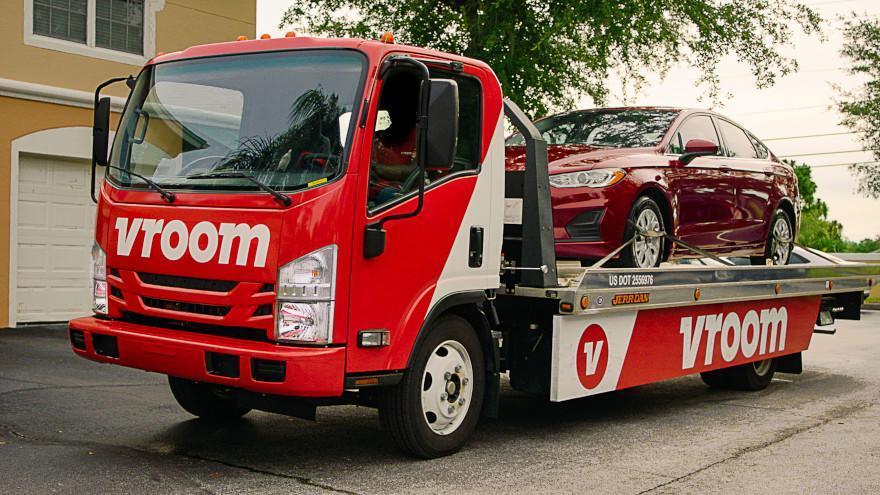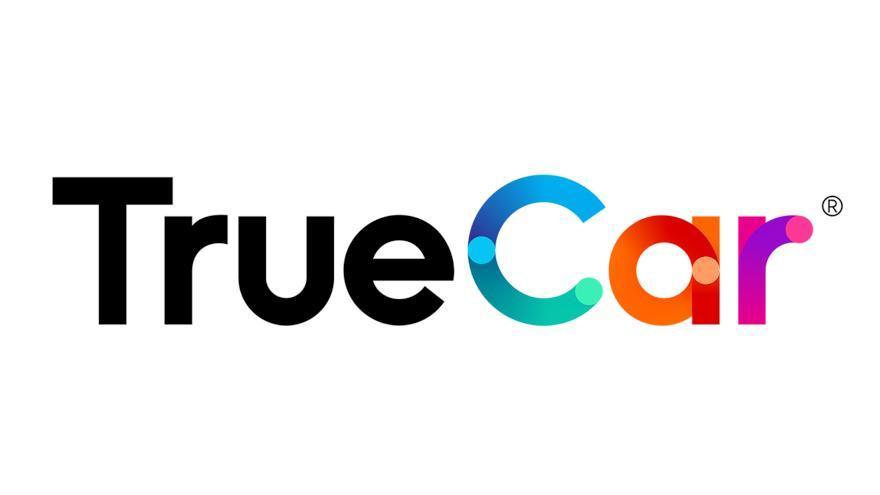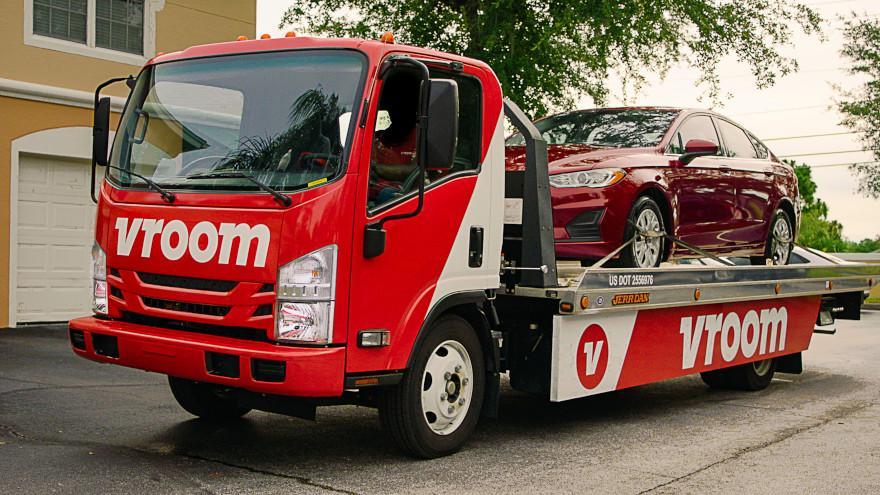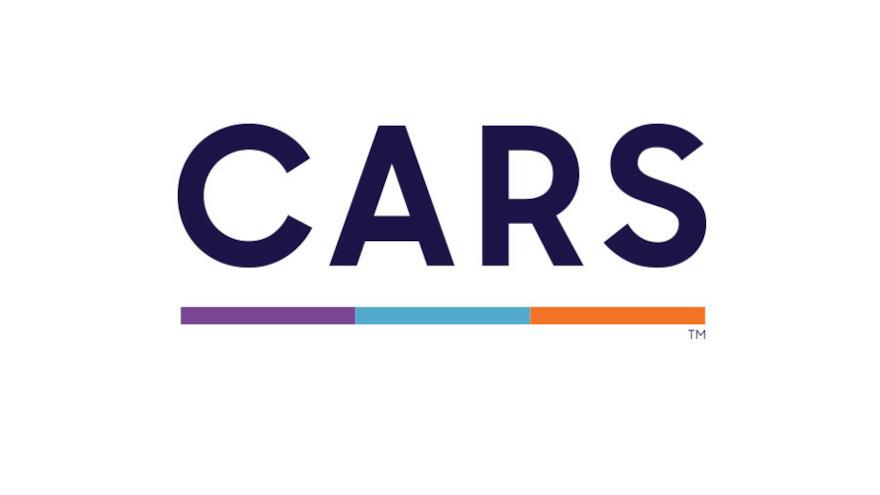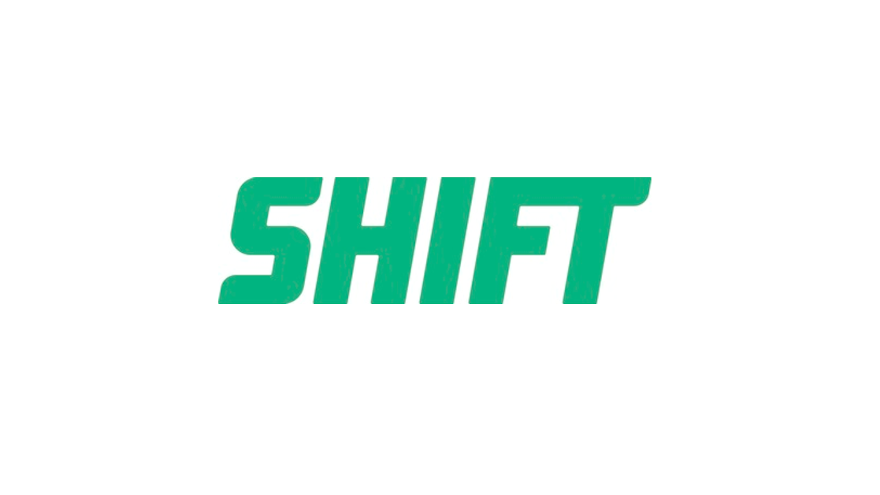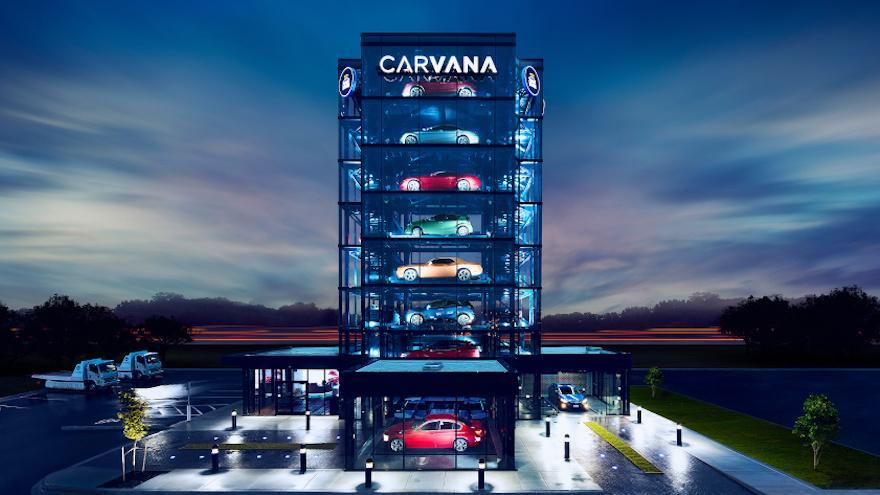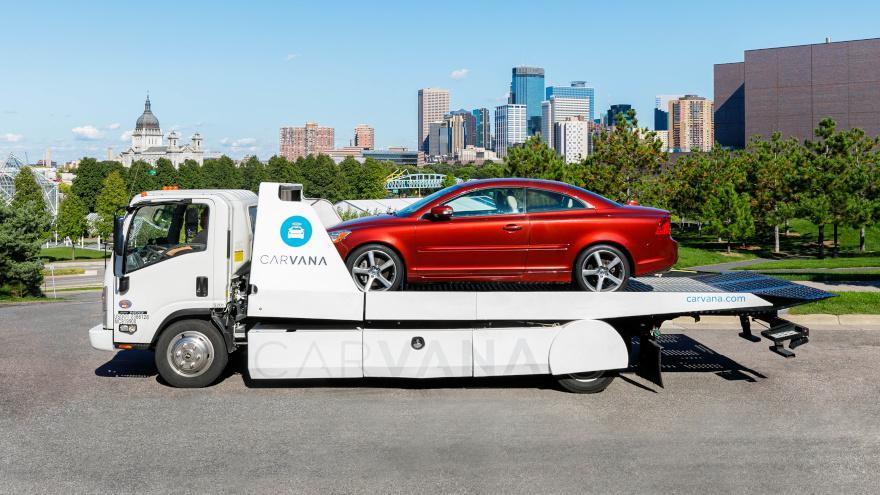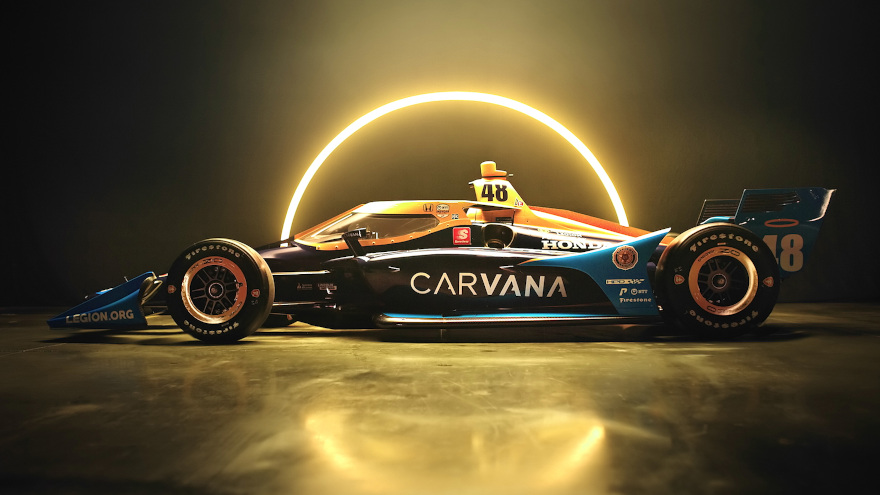Along with boosting its manpower in the Motor City, Vroom has launched its local Detroit hub and what it describes as a more customized driveway experience for 3.4 million people in 740 ZIP codes within a 40-mile radius.
That experience includes a more personalized concierge service in which customer advocates transport cars directly to car buyers’ driveways on Vroom-branded trucks and show them how to use their new vehicles.
The company made that move after two earlier announcements that it was opening new hubs in Chicago and Los Angeles.
Noting that the pandemic has increased consumer desire for remote car buying and selling, Vroom said car purchases by Detroit-area Vroom customers increased by nearly 163% year-over-year from the previous year.
Consumer sales of cars to Vroom increased by 189%.
Vroom said it is emphasizing customer service and recruiting employees with hospitality and client service experience. Led by Vroom’s chief logistics officer, Mary Kay Wegner, and her logistics leadership team, led by new vice president of transportation, John Piatak, and vice president of hub operations, Steve DeVoe, the company recently made its 1000th Last Mile delivery.
Piatak joined Vroom after leading transportation at Carvana, and DeVoe spent the last six years creating supply chain management services at Veritiv.
“With our valued customers in mind, creating a more personalized driveway experience and rolling out more local hubs across the country has been a priority for us at Vroom, so we’re excited to launch this offering in Detroit,” Wegner said in a news release. “The Motor City has a rich automotive history and a growing tech presence, and we’re thrilled to be a part of the next generation of auto innovation here.”
Vroom is also expanding its downtown Detroit office, which has a team of nearly 50 engineers, designers and product managers responsible for improving the platform’s digital experience.
The company said the office’s headcount has nearly tripled since its August 2019 opening.
The team is led by John Caine, Vroom’s chief conversion officer and chief product officer.
Vroom is based in New York and Houston. The company said the team looked forward to establishing a local Detroit presence, as the company sits at the intersection of the city’s historical automotive industry legacy. Detroit native and lifelong Michigan resident Bob Mylod, managing partner of Annox Capital Management who sits on the boards of Booking Holdings, Redfin, Dropbox and Bloomscape, is the long-time chair of Vroom’s board of directors.
“We’re proud to be a part of the local tech and automotive communities here, and we are excited that our Detroit customers will see more of our red and white trucks and experience our more personalized delivery process,” Caine said. “It has been great to grow with the community since 2019 and we’re looking forward to growing our teams here even further.”
Through a new pilot program between TrueCar and digital sales platform Roadster, consumers using TrueCar will be able to finalize their car buying deals digitally through an API that integrates into Roadster’s back-end software.
TrueCar president and chief executive officer Mike Darrow said that through the pilot program, TrueCar consumers at select dealerships will be able to build real car deals digitally.
That includes finance terms.
“The ability to finalize the terms of a car deal online is critical to creating a great retail experience,” Darrow said in a news release.
The capability is currently available at more than 650 dealers that work with both TrueCar and Roadster.
TrueCar said it aims for consumers to have as much or as little of their car buying experience online as they prefer. Consumers can research and find a car online, and get real pricing on an actual vehicle. They can receive a cash offer on their trade-in to use toward their new vehicle.
With the new program, consumers can extend the car buying experience even further online. They can do that by completing their deal terms digitally through the integration with Roadster.
TrueCar said the new program with Roadster is the first step in its work to use data exchanges and technology integrations with digital retailing providers such as Roadster to improve the car buying experience.
That approach modernizes data exchanges via API integrations built by partners such as Roadster.
TrueCar said the enhancement addresses what it describes as pain points for consumers and dealers, making car buying easier and eliminating unnecessary friction between buyers and sellers.
Consumers using the TrueCar and Roadster integration can now pick up on the dealer’s Express Storefront where they left off on TrueCar. They can do that without having to repeat any steps.
The consumer will see the same vehicle price, qualifying incentives, and lease/finance deal terms that they configured and were presented on TrueCar (subject to validation of the information provided by the consumer). Dealers will have all the pertinent deal structure inputs from the consumer and will see a more efficient process by passing the information into the dealer’s Roadster Admin sales tool for follow up.
TrueCar provided more detail on how the process works. Once a car buyer has built and personalized his or her deal on a vehicle on TrueCar, he or she can finalize terms of the deal with the option to enter into participating dealers’ “Express Store” powered by Roadster.
All the vehicle deal-building work configured by the TrueCar shopper is carried over from TrueCar into the “Roadster Admin” for follow-up. The dealer no longer must cross-reference or ask customers questions they have already answered on TrueCar.
“This puts customers and dealers on the same page, reducing friction,” TrueCar said.
Online or offline, the consumer can finalize his or her deal terms with the dealer.
“Consumers want their car buying experience to be as easy as anything else,” said Roadster CEO Andy Moss, in the release.
Moss also said, “Through the development and use of robust retail APIs, like the one we are implementing here, we will now be able to create a seamless car buying experience for marketplaces like TrueCar. We are proud to work alongside such great partners like TrueCar to offer a modern end-to-end car buying solution that consumers have been waiting for.”
Vroom, which has delivered in the Chicago and Los Angeles areas since its 2012 founding, has opened new hubs in those cities.
Vroom, an e-commerce platform for buying and selling used vehicles, said that in the Windy City, it is also offering a more customized driveway experience for 4.7 million people in 420 ZIP codes within a 25-mile radius.
The company is now offering a more personalized concierge service in which customer advocates transport cars directly to car buyers’ driveways on Vroom-branded trucks.
Those advocates also show buyers how to use their new vehicles.
Vroom’s Chicago Last Mile hub is located in Hoffman Estates, Ill. The company recently made its 1000th Last Mile delivery, led by Vroom chief logistics officer Mary Kay Wegner and her logistics leadership team.
The logistics leadership team is led by new vice president of transportation John Piatak, who manages Vroom’s delivery hubs nationwide and joined Vroom after leading logistics at Carvana.
“With our valued customers in mind, creating a more personalized driveway experience and rolling out more local hubs across the country has been a priority for us at Vroom and we’re excited to launch this offering in Chicago, a city with a well-known and long-standing presence in the automotive industry,” Wegner said in a news release.
Wegner also said, “As we prioritize expanding the Last Mile experience nationwide, we’ll continue to grow and invest in our senior logistics team to support these efforts.”
Regarding the Los Angeles hub, Vroom said it is offering a more customized driveway experience for 13 million people in more than 1,000 ZIP codes within a 50-mile radius. Vroom’s Los Angeles Last Mile hub is located in Jurupa Valley, Riverside.
Car purchases by Los Angeles-area Vroom customers increased by nearly 65% year-over-year from 2019 to 2020. Cars sold to Vroom by consumers increased by 261%.
As digital-first experiences take the spotlight and consumers increasingly seek reviews about how businesses are handling pandemic-related health and safety concerns, Cars.com said 10 million car buyers have now left reviews for dealers on its platform.
The milestone comes as 38% of consumers report they read more reviews because of COVID-19, according to a DealerRater Consumer Survey last month.
Cars.com said the number of people leaving reviews about local dealers is also increasing, as March marked the highest volume ever of new reviews on the Cars.com platform. The platform saw nearly 140,000 reviews posted in a single month, according to Cars.com and DealerRater internal data from last month.
Consumers have left 90% positive reviews for local car dealerships during the pandemic’s peak, according to Cars.com and DealerRater internal data.
The companies’ research uncovered other national trends:
— Three-star minimum for most purchases. One in three shoppers won't make a purchase without reading a review, according to an April DealerRater Consumer Survey. Sixty-eight percent of shoppers will not buy from a business with fewer than three stars.
— The rise of “no touch” retail. Reviews mentioning contactless services, including “safe pickup” and “home delivery,” rose 1,100% over the past year, according to Cars.com and DealerRater internal data. Cars.com said that shows car dealers are meeting shoppers’ changing needs and transforming the car-buying process.
— Health and safety: new and influential review criteria. Sixty-nine percent of respondents would not buy from a business with poor or negative reviews about pandemic health and safety measures, according to an April DealerRater Consumer Survey.
— Reviews drive sales. For more than 85% of dealerships, DealerRater reviews helped them sell or service more vehicles, according to a March DealerRater Dealer Survey.
— Employee reviews spur requests, referrals and sales. For almost 80% of DealerRater users, consumers have specifically asked for them because of their online reviews and reputation. Nearly 90% of shopper requests to work with a specific sales representative led to a sale, according to a March DealerRater Dealer Survey.
Cars.com chief experience officer Brooke Skinner Ricketts said cars are a large, considered purchase. Consumers, Ricketts said, can spend months researching about what and where to buy.
“Reviews have been and will continue to be critical to the research phase as shoppers trust unbiased advice from others like them,” Ricketts said in a news release.
Ricketts also said, “Reviews on Cars.com have become even more important over the last year as consumers pay closer attention to the buying experience offered by local businesses as consumers seek the best overall experience for their needs.”
Used-car e-commerce platform Shift launched its service to purchase cars from consumers in the Las Vegas region.
It is the company’s first market in Nevada, and consumers are now eligible to sell their cars directly to Shift in 11 U.S. geographies.
Shift co-chief executive officer Toby Russell said Las Vegas is business-friendly and is a major thoroughfare, making it a strategic choice for the company’s first Nevada market.
“We look forward to serving the residents of this populous metropolitan area and bringing them an easier way to sell their cars,” Russell said in a news release.
Now available to consumers within the greater Las Vegas region, Shift’s car-buying service provides a transparent alternative to the traditional methods of selling their cars, according to the company.
Consumers can get an instant, no-obligation online quote on Shift.com and can then book an evaluation appointment.
At that appointment, a Shift concierge will visit their location, evaluate the car and make a final offer. If the customer accepts, he or she at that time will complete the transaction digitally, including electronic payment initiation and DMV paperwork using Shift’s iPad app.
Evaluation appointments take a total of approximately one hour.
Cars.com has appointed Jenell Ross to its board of directors, noting that her 28 years of auto industry experience includes 11 years as president of Bob Ross Auto Group, a Buick-GMC and Mercedes-Benz dealership based in Ohio.
Cars.com said Bob Ross Auto Group was the first U.S. African American-owned Mercedes-Benz dealer and added that Ross is the only second-generation African American female auto dealer in the country.
Ross was previously chair of the American International Automobile Dealers Association, and CARS said she was the first minority and the second female to lead that organization of nearly 10,000 dealers.
“Jenell brings valuable insights to the board through her years of leadership in the automotive industry and the public, civic and charity boards on which she is involved,” CARS chairman of the board Scott Forbes said in a news release. “Her real-world experience as a successful dealer owner-operator further enhances the perspectives of our board.”
“I am pleased to join CARS in support of their quest for category leadership,” Ross said. “I look forward to contributing a dealer's perspective as I work with the board and management team to help the CARS platform generate meaningful sales and efficiencies for our industry through innovation.”
Ross is also a board of directors member at Hub Group, a North American supply chain solutions company. She recently served on the board of the Federal Reserve Bank of Cleveland, Cincinnati branch.
She also serves on the board of trustees for the University of Dayton and the Will Allen Foundation.
In addition, Ross is a board member for the Minority Business Partnership through the Dayton Chamber of Commerce. She is also an active member of the Dayton Area Automobile Dealers Association and the Ohio Auto Dealers Association.
CARS also noted Ross’s passion for giving back.
She started a charity, the Norma J. Ross Memorial Foundation, to honor her late mother. That organization supports youth in education and the arts and raises funds in the fight against breast cancer.
Ross was also a 2013 honoree in Auto Remarketing's Women in Remarketing program.
“Jenell is a 28-year auto industry veteran and accomplished leader. She will bring incredible perspective and valuable insights to the CARS Board as a successful second generation dealer owner-operator of the Bob Ross Auto Group – the first African American-owned Mercedes-Benz dealer in the U.S.,” CARS president and chief executive officer Alex Vetter said in emailed comments.
“Keeping local dealers at the center of our industry remains a guiding principle, and the addition of Jenell will help strengthen CARS commitment to enabling local operators to leverage technology to their competitive advantage. The CARS Board and management team is excited to work with her,” he said.
They have been called startups, disruptors, online retailers and ecommerce platforms throughout their young histories.
But Cox Automotive has a new name for companies like Carvana, Shift and Vroom: “New Form Online Retailers,” or NFORs.
And even beyond relatively recent forays into the public markets (Vroom’s initial public offering and Shift’s SPAC merger in 2020; Carvana’s 2017 IPO), these “NFORs” are showing growth in their ability to connect with car shoppers.
According to the Cox Automotive Car Buyer Journey: Pandemic Edition study, 17% of car buyers last year went to an NFOR website. That compares to 11% in 2019, 7% in 2018 and 3% in 2017.
Meantime, there was a decline in dealership (61% to 52%) and OEM website traffic (26% to 24%), while third-party usage was steady at the top (79%).
Cox Automotive says greater consumer interest in used vehicles has helped spur usage of these NFOR sites.
(Its study found 57% of 2020 buyers browsed used and new vehicles versus 53% a year earlier).
“The NFORs are clearly promising what consumers want, and they are catering to a majority of vehicle buyers in America,” Cox Automotive analysis said in a Data Point analysis from March 3 recapping some of the study.
And those buyers have a greater appetite for used, which Cox attributes to tighter new-car supply and economic fallout for many families from COVID-19.
“With strong interest in used vehicles, it should come as no surprise that these new online retail operations are expanding their reach, finding more visitors on their sites and delivering more sales,” analysts said. “Their business models are built on the promise of a completely digital transaction — a 'click-to-buy' experience that is relentlessly promoted.”
That promotion comes in a variety of forms, from car vending machines to Super Bowl ad spots.
And Cox Automotive has found the “appeal” of these NFORs “is working.”
Online platforms boost sales in 2020
As previously reported in Auto Remarketing, Shift increased its total units sold by 18% year-over-year, moving 13,135 vehicles. Of those, 9,497 were ecommerce sales (up 15%) and 3,638 were wholesale sales (up 29%).
The company closed the year with a record quarter for total units sold (4,666) and revenue ($73.4 million).
Vroom had 34,488 ecommerce sales last year, beating the year-ago figure by 82%. Wholesale unit sales were up 4.5% at 21,108. Its TDA sales fell 43.3% to 7,385 units.
All told, total unit sales were up 20.7% for the year, coming in at 62,981
Carvana had 244,111 retail sales in 2020, a 37% hike, with revenue climbing 42% to $5.59 billion.
“The NFORs are not yet profitable, as their efforts are focused on volume growth, but in terms of consumer awareness and shopping traffic, 2020 was a breakthrough year for many New Form Online Retailers,” Cox said in its analysis.
‘2020 only helped accelerate the growth’
Carvana, which Cox said is “the largest, most established NFOR,” discussed that breakthrough year in detail in its second annual online car buying report released last week.
“Car buyers have been waiting for a safe, transparent, and effective way to purchase vehicles online, and the events of 2020 only helped accelerate the growth that we were already generating,” Carvana founder and chief executive Ernie Garcia said in a news release accompanying the study. “We’ve examined the data from more than 244,000 purchases last year, showing some remarkable trends in online car buying, and how we’re positioned for more and more consumers choosing to buy their next car online.”
Carvana said it took a “slight” sales hit at the outset of the pandemic, before a late April rebound. Its sales ultimately, “continued to improve with sales growth of approximately 40 percent year-over-year later in Q2,” the company said in the report.
Deliveries for Carvana climbed more than 31% between the second and fourth quarters, it said.
And the third quarter brought this first for Carvana: it bought more cars from consumers than it sold. The company said it has purchased more than 350,000 vehicles from consumers in its history. Close to three-fifths (203,000) of those purchases occurred last year, Carvana said.
The five models it most often purchased from consumers were all Honda and Toyota models. That list included the Honda Civic at No. 1, followed by Honda Accord, Toyota Camry, Honda CRV and Toyota Corolla, respectively.
As far as what consumers are buying from Carvana, the list included the Civic, Chevrolet Equinox, Ford F-150, Accord and Nissan Rogue.
The brand of vehicle consumers most often purchased from Carvana was Chevrolet, followed by Ford, Toyota, Nissan and Honda, respectively, the company said.
The fastest-selling rides on Carvana’s platform (based on time from listing on site to purchase) was the 2018 Volkswagen Jetta (1 minute) followed by the 2017 Lexus RX 350 (3 minutes), 2018 Hyundai Santa Fe Sport (4 minutes) and the 2012 Audi A6 (5 minutes).
The SUV was the most popular body style for Carvana last year, representing 35% of its sales. Sedans were next with a 34% share, followed by wagons (11%), hatchbacks (8%), pickups (5%), coupes (3%) and minivans (3%).
One vehicle type that showed growing interest among Carvana buyers was the electric vehicles. Purchases in that segment were on 24% year-over-year on Carvana’s platform, it said.
While the Nissan Leaf was the most popular EV among Carvana buyers, two of the top five were Tesla vehicles: the Model 3 in second and the Model S in fourth.
Tesla vehicles sold an average of 37 days after Carvana acquired them. The rate for other vehicles is 70 days.
Of the Tesla units Carvana sold last year, 70% were purchased from consumers.
Market expansion
Carvana also realized some geographic growth last year.
By the end of the year, Carvana was available to 266 markets — a reach that covers nearly 74% of the U.S., it says — and the company had 27 car-vending machines.
Total markets climbed 82% from 2019.
“To meet the demand of more online car buyers, we opened a record 100 additional markets across 24 states in one day to provide those who needed to purchase a vehicle to keep moving, with an entirely online car buying experience,” Carvana said in the study.
It added: “We supported urban commuters that typically relied heavily on public transportation and saw an uptick in deliveries in the Northeast region, for example, by 177% from the year prior.”
Dealers heavily in the mix, too
Going back to the Cox Automotive study, its analysts emphasized that these new retailers “are not the only ones shifting the auto buying landscape.”
The industry at-large is moving towards digital, and that includes a heavy dose of digital progress by car dealers.
And players like CarMax, which announced in September that it had finished rolling out its omni-channel capabilities nationally, a process it started in late 2018 with the launch of omni-channel in Atlanta. CarMax’s omni-channel experience lets consumers buy used cars online, in-store or a blend of both.
As dealers made more of the car-buying process available to be completed online, transaction times fell and satisfaction increased, Cox said.
“Importantly, vehicle buyers who did the most steps online were the most satisfied buyers. And those same satisfied buyers will be expecting to move through the process with more steps online when they return to the market a few years down the road,” it said.
Calling last year a “tipping point” for the industry, Cox said dealers enacted “dramatic changes” in response to consumer demand.
“In addition to driving more efficiency into the purchase process by digitizing more steps, more dealers began offering home services such as virtual vehicle walkarounds, test drives at home and vehicle delivery which includes the option of completing the final paperwork wherever consumers are located,” the company said.
“After many years of consumers wanting a better car buying process, the pandemic accelerated changes in auto retailing and revolutionized the buying process across the board — at all dealerships, not just the rapidly growing NFORs,” Cox said. “If customer satisfaction is the ultimate measure, the car buying journey is changing for the better.”
Just a handful or so years ago, online used-car sales platforms like Carvana, Shift and Vroom were startups, thought of as “disruptors” to the market.
These days, they have national advertising campaigns, even popping up during the Super Bowl. And after an IPO (from Vroom) and a SPAC merger (from Shift) in 2020, all three are publicly traded.
So, with that in mind, Auto Remarketing shares this recap of how each performed in 2020.
We begin with Shift, which was the most recent in announcing fourth-quarter and full-year 2020 results.
Shift’s year ends with record quarter for sales & revenue
Shift pulled in $195.72 million in revenue in 2020, up 18% year-over-year. And after a loss of $1.76 million in 2019, Shift’s gross profits came in at $12.18 million last year.
Adjusted gross profits for the year climbed 91% to $12.82 million.
The company reported a net loss of $59.15 million for the year, improving upon a net loss of $80.48 million in 2019.
Its adjusted EBITDA loss was $68.46 million, compared to $51.29 million a year earlier.
Shift increased its total units sold by 18% year-over-year, moving 13,135 vehicles. Of those, 9,497 were ecommerce sales (up 15%) and 3,638 were wholesale sales (up 29%).
The company closed the year with a record quarter for total units sold (4,666) and revenue ($73.4 million).
“In several respects, the fourth quarter was a record-setting period for the company. We set new records for both units sold and revenue, representing 147% and 168% year-over-year growth, respectively,” Shift co-chief executive officer Toby Russell said in an earnings release. “We prioritized maintaining top-line momentum through the challenging Q4 environment, which ultimately meant Q4 gross profit and Q4 adjusted GPU were below the expected range.
“We made both strategic and tactical decisions to improve our reconditioning processes, initiate a branding campaign and enter new geographic markets. These actions have laid the foundation for success in FY 2021.”
Added co-CEO George Arison, “A critical operational focus of Q4 was to improve reconditioning, with our in-house throughput increasing dramatically. This has created strong momentum for 2021.
“For the first quarter 2021, we expect revenue to grow 26% sequentially from Q4 2020 and adjusted GPU to increase 2-times over Q4 2020. For the full-year 2021, we expect revenue to grow 130% over 2020 and adjusted GPU to grow 19% year-over-year. With this strong momentum, we are trending on track for our targeted mid-term adjusted GPU of $2,500.”
Arison added later in the release: “Q4 was about maintaining top-line momentum through the end of the year, to put ourselves in a position to accelerate growth through Q1 and beyond. I am proud of the way our team responded to significant adversity in 2020 and am excited to demonstrate continued progress throughout the year.”
Vroom's ecommerce sales up 82%
Next up, Vroom pulled in $1.36 billion in total revenues last year, up from $1.19 billion in 2019.
Retail vehicle net revenue was $1.07 billion, up from $952.91 million a year earlier. Wholesale vehicle net revenue was $245.58 million, up from $213.46 million. Product net revenue climbed from $23.71 million to $38.20 million. It had other revenues of $1.37 million, compared to $1.74 million a year earlier.
Vroom had a net loss of $202.80 million in 2020, compared to a net loss of $142.98 million a year earlier.
Vroom had 34,488 ecommerce sales last year, beating the year-ago figure by 82%. Wholesale unit sales were up 4.5% at 21,108.
TDA sales fell 43.3% to 7,385 units.
All told, total unit sales were up 20.7% for the year, coming in at 62,981.
In an earnings release, Vroom CEO Paul Hennessy said: “Vroom had a strong fourth quarter, with significant year-over-year growth in our ecommerce business. Inventory and marketing are scaling as planned, which is increasing the velocity of the Vroom flywheel, driving conversion and increased sales and revenues.
“Consistent with our relentless focus on data science, we announced the acquisition of CarStory, a leader in AI-powered analytics and digital services for automotive retail, which closed in January 2021,” he said.
“As the used vehicle market continues to embrace the ecommerce model, we will continue to execute our plan and invest in scaling our business and improving our customer experience as we transform the market for buying and selling used vehicles.”
How Carvana fared in 2020
As reported earlier in Auto Remarketing, Carvana said that it finished 2020 with a 37% increase in retail units sold, a 42% rise in revenue and a 57% jump in total gross profit fueled by a $400 uptick gross profit per unit.
With all of those tremendous gains, Carvana said that its annual net loss came in at $462 million, an increase from the $365 million loss recorded in 2019.
Carvana founder and chief executive officer Ernie Garcia certainly appears to be confident of the company’s long-term potential, saying in a news release, “2020 highlighted the strengths of our business model and validated our vision for the future of car buying.
“We’re extremely proud of how our team navigated an unprecedented year of constant adaptation,” Garcia continued. “Their exceptional execution and relentless focus on delivering the best experiences to our customers vaulted us to becoming the second-largest seller of used cars in the country, another meaningful milestone in our march to becoming the largest and most profitable automotive retailer.”
Here are more specific details about Carvana’s 2020 performance:
• Retail units sold totaled 244,111, an increase of 37%
• Revenue totaled $5.587 billion, an increase of 42%
• Total gross profit was $794 million, an increase of 57%
• Total gross profit per unit was $3,252, an increase of $400
Another segment of Carvana’s business that made major improvements in 2020 was purchasing vehicles from consumers, acquiring 204,000 units last year. That figure is up 95% year-over-year, as Carvana purchased 104,000 units from consumers in 2019.
In a letter to shareholders, Carvana discussed its expectations and objectives for 2021.
“We expect to accelerate growth in retail units sold, and with demand for our offering currently outpacing our supply chain capacity, we expect the level of growth and timing of sales to be governed primarily by the speed at which we scale our production,” the company said.
“We expect revenue growth in FY 2021 to be in line with retail units sold growth,” Carvana continued. “We expect total GPU, which includes retail, wholesale, and other gross profit, in the mid-$3,000s in FY 2021, continuing our progress on increasing GPU. Finally, in light of the size of our opportunity and our strong financial position, we expect to invest in building our business for the long-term, leading to a small EBITDA margin loss in FY 2021 while continuing our progress on demonstrating leverage.
“We are excited about 2021 which we expect to be another significant step toward our long-term goals,” the company reiterated.
Nick Zulovich contributed to this report.
CarMax is now offering consumers online vehicle appraisal offers through a new tool launched across the country this week.
The online appraisal tool is designed to provide an offer on a customer’s car in less than two minutes, the company said. The offer is good for seven days and is subject to the vehicle’s mechanical and cosmetic condition being verified.
“There’s no doubt that the pandemic brought on changes in buying behavior with consumers focused on convenience and safety, and looking to do more of the process online,” Darren Newberry, CarMax’s senior vice president of store operations, said in comments emailed to Auto Remarketing.
“That’s why at CarMax, we empower customers to shop and buy on their terms, whether that means buying a car online, in store, or a seamless combination of the two. The launch of our online appraisals tool is another example of how CarMax is bringing flexibility and convenience to customers by meeting them where they are,” he said.
“This tool makes it fast and convenient for a customer to get a real offer on their vehicle from home. Knowing the price you can get on your current vehicle is an important part of the research phase when in the market for a vehicle,” Newberry said. “This tool prepares customers with the additional information they need to know they are making the best decision.”
This is the latest in several steps CarMax has taken to provide a more flexible, contactless consumer experience.
The retailer is offering contactless curbside pickup across the country and home delivery for most buyers.
CarMax announced in September that it had finished rolling out its omni-channel capabilities nationally, a process it started in late 2018 with the launch of omni-channel in Atlanta. CarMax’s omni-channel experience lets consumers buy used cars online, in-store or a blend of both.
Seven-time NASCAR champion Jimmie Johnson closed that portion of his racing career in a car sponsored by an auto finance company.
Now in a new circuit with a new car, Johnson’s ride is sponsored by an online used-vehicle retailer.
On Monday, Carvana unveiled the paint scheme for Chip Ganassi Racing’s No. 48 Honda to be driven by Johnson in the upcoming NTT INDYCAR SERIES season.
Featuring Carvana’s iconic halo and signature blue color palette, the No. 48 Honda will make its racing debut with Johnson behind the wheel on April 18 at Barber Motorsports Park as the NTT INDYCAR SERIES 2021 racing season gets started.
“We have great partners in Chip Ganassi Racing and Jimmie Johnson,” Carvana chief brand officer Ryan Keeton said in Monday’s news release in reference to the relationship first made public in October.
“Jimmie had ideas we implemented into the final paint scheme, and it’s something we’re really proud of, not only for the aesthetics but also the collaborative approach to design,” Keeton continued.
Johnson has been racing with prominent sponsors for years. For those seven NASCAR championships, Lowe’s Home Improvement sponsored the car. And Johnson wrapped up his NASCAR career with Ally Financial embossed as the main sponsor.
“I’m really excited about this paint scheme and over the last few years of my career I’ve found myself much more involved with the look of the cars that I drive, and I was very thankful Carvana gave me the opportunity to be involved in the design process of my very first Indy car,” Johnson said.
“The collaboration between myself, Chip Ganassi Racing, Carvana and the design group was a lot of fun. We came up with many, many good ideas,” he continued. “So I'm very excited about our primary paint scheme, and also excited about some opportunities we might have in the future to mix things up and keep things fresh.”
When Johnson isn’t in the driver’s seat for the road and street circuits, NTT INDYCAR SERIES veteran Tony Kanaan will pilot the No. 48 Honda on the oval tracks, including for the Indianapolis 500.
Fans can view a full complement of images and videos featuring the newly outfitted car on Carvana Racing’s social channels:
Carvana Racing on YouTube
Carvana Racing on Twitter
Carvana Racing on Facebook
Carvana Racing on Instagram

